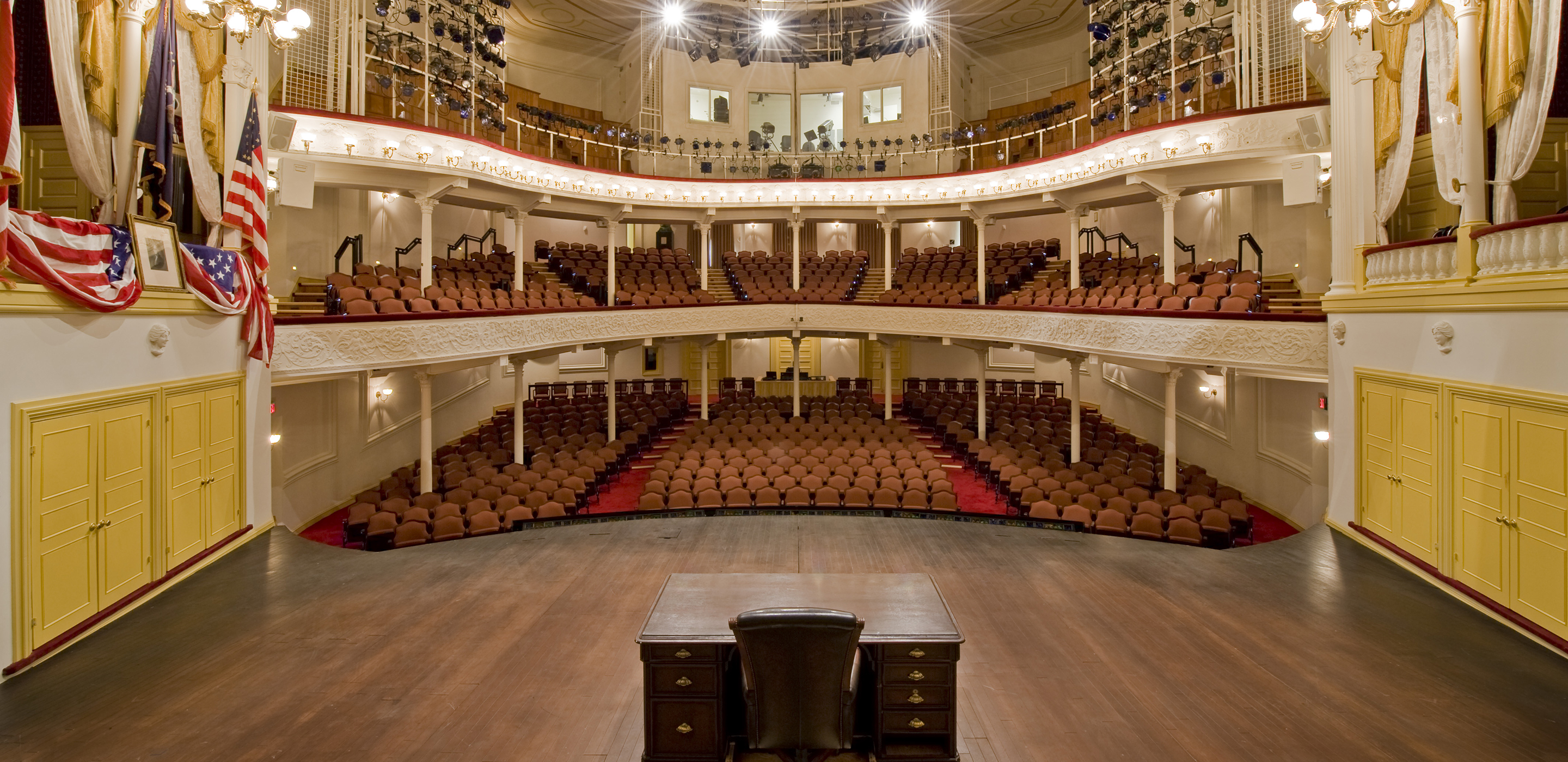
Lucy Lambert Hale: The “It Girl” of 1865
Working at Ford’s Theatre, people often ask me about little-known facts concerning the Lincoln assassination. My go-to answer is always to a highlight a woman few people have ever heard of: Lucy Lambert Hale.
When John Wilkes Booth was captured and ultimately shot by Union soldiers, there were photos of five women in his pockets. Four were actresses – Helen Western, Effie Germon, Fanny Brown and Alice Grey – and the other was Lucy Lambert Hale.

Though you may not have heard of Hale, if you were a young man in Washington in the 1860s, you most certainly would know who she was. Not only was Hale the daughter of well-known abolitionist Senator John Parker Hale, she also courted some of the most well-known bachelors of the era: future Supreme Court Justice Oliver Wendell Holmes, Jr., future Secretary of the Navy and Senator from New Hampshire William Chandler, and secretary to President Lincoln and future Secretary of State John Hay. Even President Lincoln’s oldest son, Robert, was reported to have sent her flowers from the White House conservatory.

Hale and her charming nature seemingly made an impression on all the men she met. One historical article describes her as, “a subtle brew of flattery, teasing, and cajoling.”
As a freshman law student at Harvard, William Chandler sent her love poems. While on vacation in Maine, Oliver Wendell Holmes, Jr., met Hale and was so head-over-heels that he wrote her saying, “after leaving you… I was so cross that no one could come within a mile of me.” Lincoln’s Secretary John Hay once wondered if, “there were anyone else in the world just like you; one of equal charm, equal power of gaining hearts, and equal disdain of the hearts you gain.”
But her most infamous relationship began on Valentine’s Day, 1862, when a mysterious suitor sent her an anonymous note:
“My dear Miss Hale,
Were it not for the License with a time-honored observance of this day allows, I had not written you this poor note … You resemble in a most remarkable degree a lady, very dear to me, now dead and your close resemblance to her surprised me the first time I saw you. This must be my apology for any apparent rudeness noticeable. To see you has indeed afforded me a melancholy pleasure, if you can conceive of such, and should we never meet nor I see you again believe me, I shall always associate you in my memory, with her, who was very beautiful, and whose face, like your own I trust, was a faithful index of gentleness and amiability. With a Thousand kind wishes for your future happiness I am, to you,
A Stranger.”

The stranger, it turns out, was none other than actor and, later, Lincoln assassin John Wilkes Booth. Both Hale and Booth lived at the National Hotel in Washington, D.C., and over the next three years, the two courted and it was rumored they became engaged (Fortune’s Fool, Alford, p. 242).
According to scholar and Ford’s Theatre Advisory Council Member Terry Alford, author of Fortune’s Fool: The Life of John Wilkes Booth, Hale helped Booth secure a ticket to Lincoln’s second inauguration in 1865 (p. 225).
No scholarly consensus exists on whether Hale and Booth’s engagement ended before or after the events of April 14, 1865. We do know that Hale was already planning to leave for Spain in early May, since her father had been appointed ambassador. We also know Senator John Parker Hale met privately with President Andrew Johnson after the Lincoln assassination. No record of this meeting exists but, according to Alford, “[Senator Hale] apparently gave a satisfactory explanation of his daughter’s connection to Booth… and secured the influence of Johnson in keeping Lucy’s name out of the government’s investigation” (p. 398).
During her five years abroad, Hale continued to socialize with eligible bachelors, including Oliver Wendell Holmes, Jr., Frederick Anderson (Robert Lincoln’s Harvard roommate) and John Hay. In 1874, Lucy married her first suitor, William Chandler, and the marriage lasted 40 years, until her death. She died in 1915 at the age of 73.
I’ve found her life fascinating! If you’re interested in learning more, I found these resources particularly helpful:
- “They All Loved Lucy,” Richmond Morcom, American Heritage, October 1970.
- “Lincolns and the Booths,” Kevin Morrow, New York Times, December 30, 2013.
- “Lucy Lambert Hale Gets a Valentine from John Wilkes Booth,” New England Historical Society, 2019.
- Fortunes Fool: The Life of John Wilkes Booth, Terry Alford, 2015.
- The Hale Family Papers, New Hampshire Historical Society, Finding Guide.
Anali Alegria was the Communications Associate at Ford’s Theatre.

